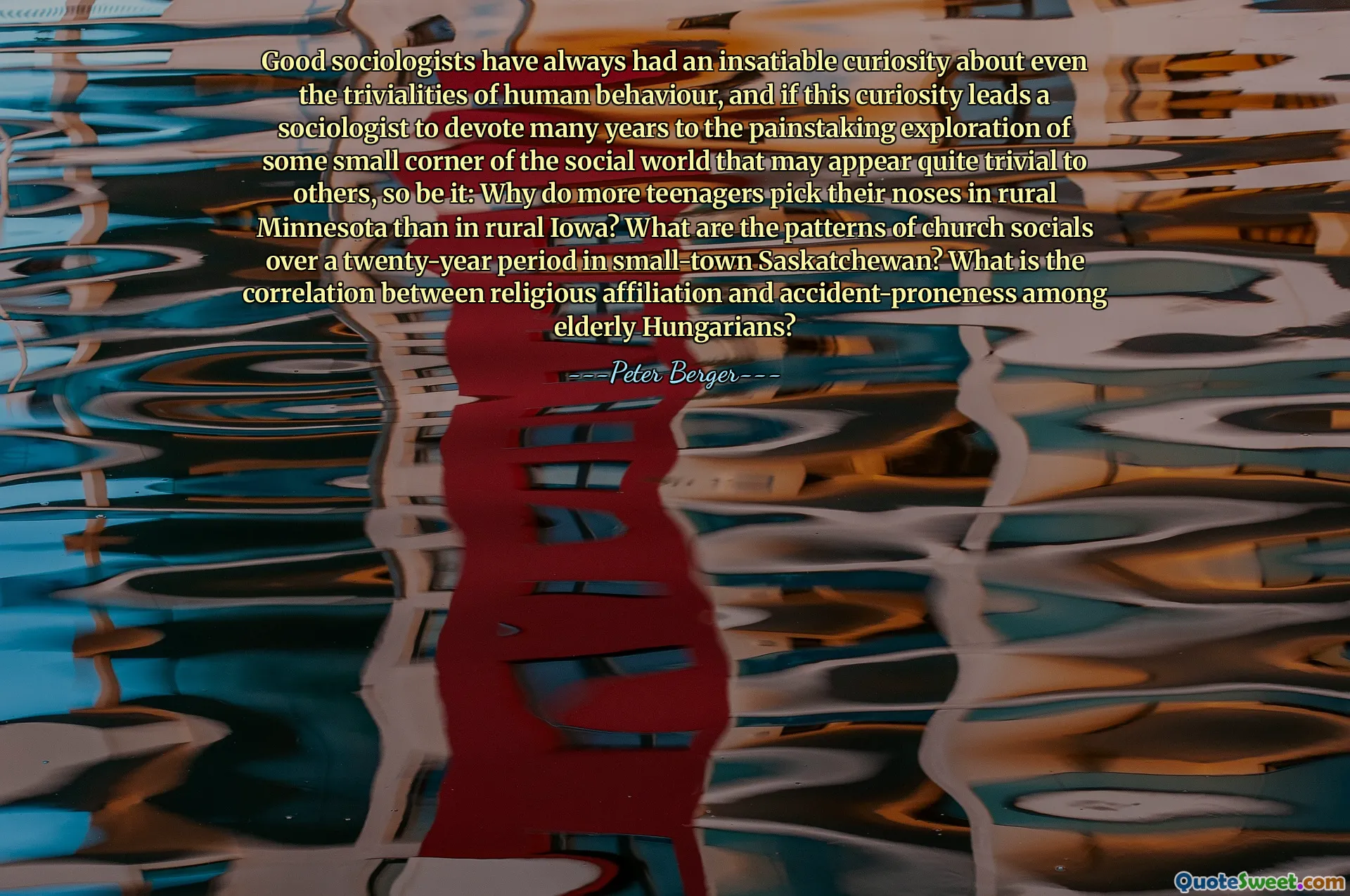
Good sociologists have always had an insatiable curiosity about even the trivialities of human behaviour, and if this curiosity leads a sociologist to devote many years to the painstaking exploration of some small corner of the social world that may appear quite trivial to others, so be it: Why do more teenagers pick their noses in rural Minnesota than in rural Iowa? What are the patterns of church socials over a twenty-year period in small-town Saskatchewan? What is the correlation between religious affiliation and accident-proneness among elderly Hungarians?
The quote captures the essence of what it means to engage deeply with sociology and the study of human behavior. It reminds us that no aspect of social life, however insignificant it may appear on the surface, is beneath the threshold of academic inquiry or curiosity. In fact, the so-called 'trivialities' often hold profound insights into the complex web of human interaction, cultural norms, and social structures. This passage is a powerful reminder of the value behind meticulous attention and dedication to seemingly minute details—whether it’s nose-picking habits among teenagers in rural America or the long-term evolution of church socials in small Canadian towns.
Such inquiries exemplify how sociologists take phenomena that might seem anecdotally interesting or inconsequential and uncover patterns and meanings that enhance our understanding of society. Peter Berger's words underscore the importance of respecting each microcosm of social life because these small windows into human behavior can illuminate broader themes such as tradition, identity, community cohesion, and even health outcomes. The persistence in studying specific demographic peculiarities, like accident-proneness among elderly Hungarians correlated with religious affiliation, conveys a dedicated form of scholarship that contributes to a richly detailed map of human societies.
Moreover, the quote invites us to appreciate that scholarly curiosity is not driven solely by what appears important but by what fuels discovery at any scale. This approach to sociology balances humility with thoroughness: it encourages the researcher to resist dismissing questions without rigor and to recognize that knowledge can be transformative regardless of its starting point. The ultimate message is clear—every small corner of the social world has a story worth telling, worthy of decades of devoted research if necessary.










